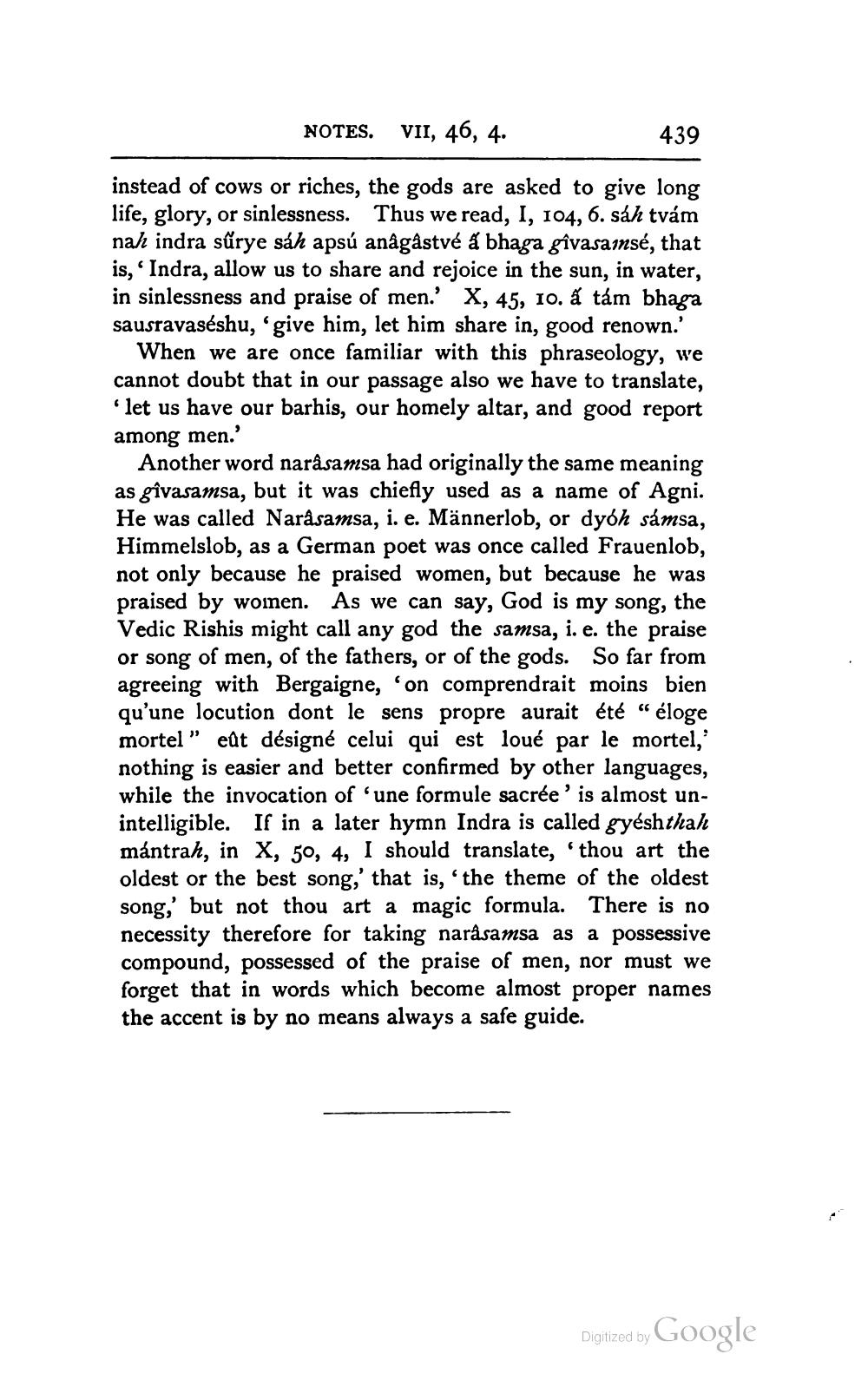________________
VII, 46, 4.
439
instead of cows or riches, the gods are asked to give long life, glory, or sinlessness. Thus we read, I, 104, 6. sáh tvám nah indra surye sáh apsú anâgâstvé á bhaga gîvasamsé, that is, Indra, allow us to share and rejoice in the sun, in water, in sinlessness and praise of men.' X, 45, 10. a tám bhaga sausravaséshu, 'give him, let him share in, good renown.'
When we are once familiar with this phraseology, we cannot doubt that in our passage also we have to translate, 'let us have our barhis, our homely altar, and good report among men.'
NOTES.
Another word narâsamsa had originally the same meaning as gîvasamsa, but it was chiefly used as a name of Agni. He was called Narâsamsa, i. e. Männerlob, or dyóh sámsa, Himmelslob, as a German poet was once called Frauenlob, not only because he praised women, but because he was praised by women. As we can say, God is my song, the Vedic Rishis might call any god the samsa, i. e. the praise or song of men, of the fathers, or of the gods. So far from agreeing with Bergaigne, 'on comprendrait moins bien qu'une locution dont le sens propre aurait été "éloge mortel eût désigné celui qui est loué par le mortel,' nothing is easier and better confirmed by other languages, while the invocation of 'une formule sacrée' is almost unintelligible. If in a later hymn Indra is called gyéshthah mántrah, in X, 50, 4, I should translate, 'thou art the oldest or the best song,' that is, 'the theme of the oldest song,' but not thou art a magic formula. There is no necessity therefore for taking narâsamsa as a possessive compound, possessed of the praise of men, nor must we forget that in words which become almost proper names the accent is by no means always a safe guide.
Digitized by Google




